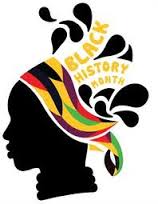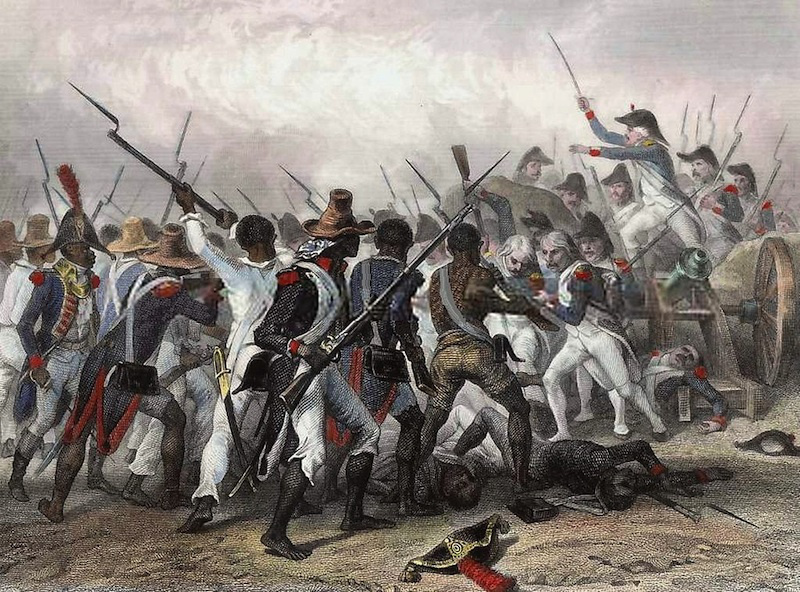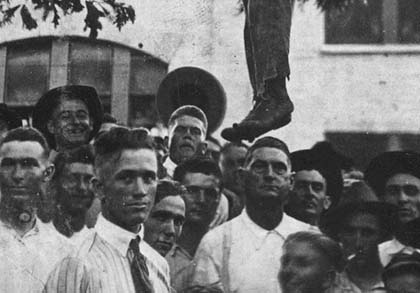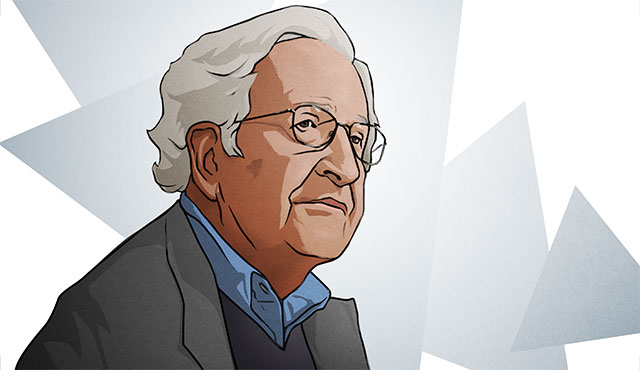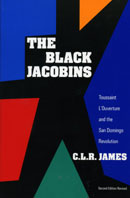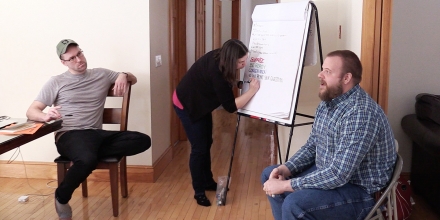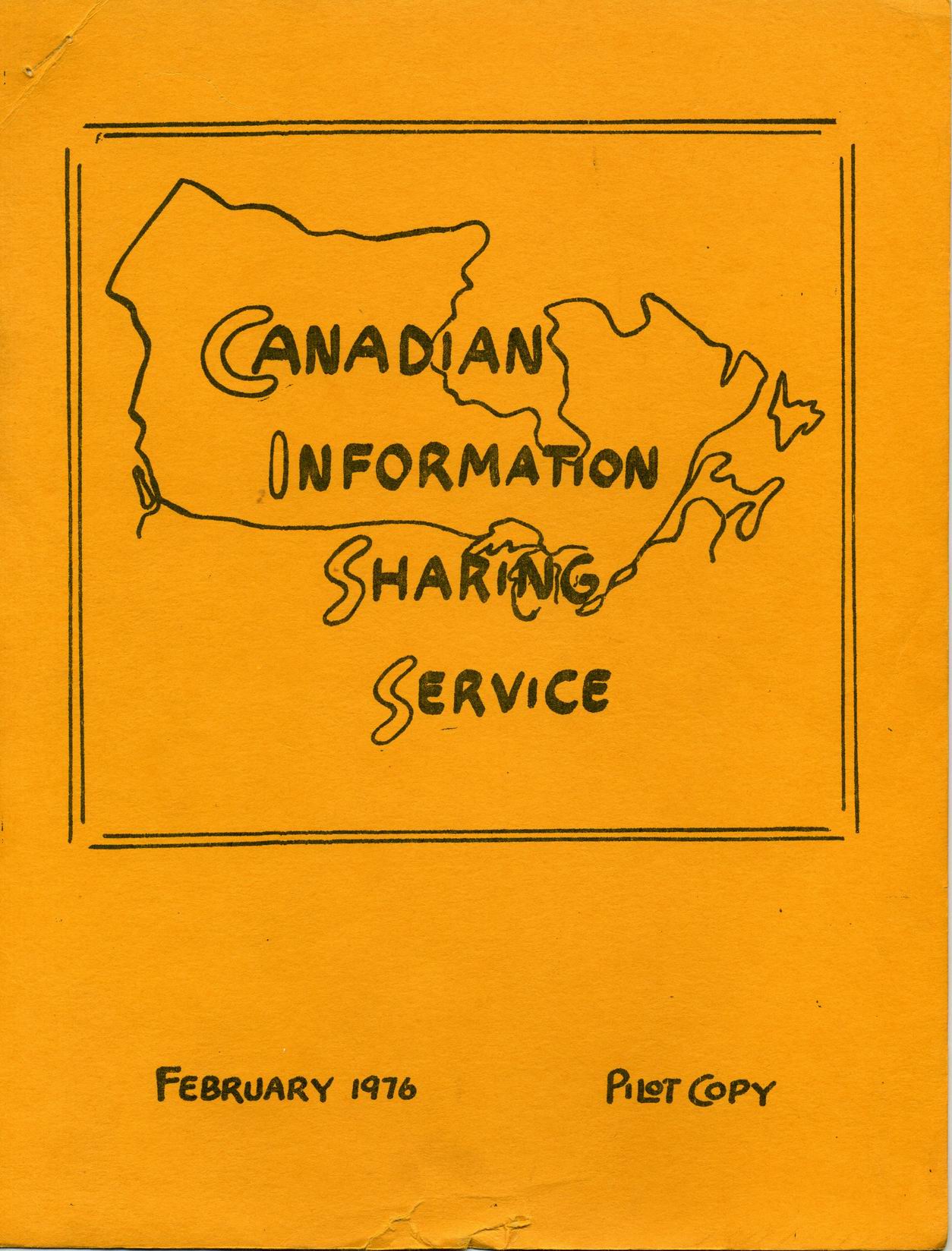Other Voices: The Connexions Newsletter
February 20, 2016
This issue: Connexions Enters Its Fifth Decade
This issue of Connexions Other Voices falls on the 40th anniversary of the publication of the very first Connexions newsletter, which was published in February 1976. That first issue carried the title “Canadian Information Sharing Service”, which was also the name of the collective which compiled it, from submissions from across Canada. Within a couple of years, the name of the publication became “Connexions” and then, a little later, “The Connexions Digest”. Connexions went online in the early 1990s, first via a computer bulletin board system (BBS) and then with the Connexions.org website.
As the Connexions project enters its fifth decade, we continue to carry on the original “information sharing” mission of connecting people working for justice with each other and with resources and information. Connexions also maintains the Connexions Archive, a physical archive of more than 100,000 documents spanning more than 50 years of grassroots activism.
We operate on a shoestring budget, and very much welcome financial support and contributions, large or small, as well as bequests. We are also looking for a permanent home, perhaps in partnership with another organization, for the archive and the people who work on it.
In addition to our own history, in this issue we spotlight black history as our topic of the week. We look at the Haitian revolution, when slaves confronted the French empire and won; black resistance against the Ku Klux Klan in the American South, and the meaning and limits of anti-racism. We also look at the Kurdish liberation movement in Rojava, the dangers posed by geoengineering, and we mark the publication of the Communist Manifesto on February 21, 1848.
As always, we invite you to share this newsletter with your friends. You can forward this email, or send them the link to the Other Voices home page on the Connexions website at www.connexions.org/Media/CxNewsletter.htm.
If you'd like to subscribe and receive this newsletter by email every two weeks, please use this form.
Your feedback is appreciated - and so are donations to keep us doing what we're doing!

Topic of the Week
Black History
To mark Black History month, our topic of the week is Black History. It is an enormous topic, encompassing much of world history. It begins on the African continent and is an essential part of the history of Americas, which cannot be understood with coming to grips with the history of slavery and colonialism. The Connexions website has a wide selection of resources specifically on black history, as well as many other materials on related topics. You can explore some of them here.
This Week on Connexions.org
Haiti: The Lost Revolution
On the first of January, 1804, Haiti became the second independent nation in the Americas. The Haitian Declaration of Independence was the triumphant culmination of the only successful slave revolution in history. The content of Haiti’s Declaration became well-known thanks to transcriptions and later printings, yet all copies of the official government-issued document disappeared from view in the decades following the revolution. Unlike the Declaration of Independence of the United States of America, which has a deep history of symbolic significance as a material object, the physical text of Haiti’s Declaration fell into obscurity. The story of the lost Declaration of Independence is a metaphor for the story of the Haitian revolution itself, a revolution that has become lost in the rewritten archives of historical memory. Almost everyone knows of the revolutions of the 1776 and 1789, the American and the French. The third great revolution of the eighteenth century – the Haitian Revolution of 1791 – is one that barely anyone remembers these days. Yet it is a revolution that shaped history almost as much as those of 1776 and 1789. Read more
Keywords: Haiti - Haitian Revolution
Racist Terror, Then and Now
African-Americans have been murdered by white mobs, vigilantes, and "law enforcement" from the time of slavery to, quite possibly, this morning. The fundamental reason for the killing of African-Americans by whites has been fear by many whites of all classes that the existing rules of racial hierarchy are endangered. These realities are rooted in a system of oppression that requires repressive institutions and practices to survive. This system includes the "prison-industrial complex," discriminatory policing, surveillance of progressive organizations and individuals, and biased media coverage. This culture of oppression has been tolerated by too many people much too long. Read more
Keywords: Police Violence - Racism
The Limits of Anti-Racism
Adolph J. Reed Jr. writes: “Antiracism is a favorite concept on the American left these days. Of course, all good sorts want to be against racism, but what does the word mean exactly? The contemporary discourse of ‘antiracism’ is focused much more on taxonomy than politics. It emphasizes the name by which we should call some strains of inequality – whether they should be broadly recognized as evidence of "racism" – over specifying the mechanisms that produce them or even the steps that can be taken to combat them. And, no, neither "overcoming racism" nor "rejecting whiteness" qualifies as such a step any more than does waiting for the "revolution" or urging God’s heavenly intervention.” Read more
Keywords: Anti-Racism - Racism
The specter of geoengineering haunts the Paris climate agreement
In a capitalist framework so-called negative emissions technologies appear to offer the only possible way out of the unfolding climate disaster. Geoengineering is the spectre that haunts the text adopted in Paris. The fact that the Agreement does not mention "energy transition" is not a regrettable lapse in a generally good text, but a strong indication that the negotiators have chosen to bet on geoengineering instead of confronting fossil capital. Read more
Keywords: Climate Change & Adaptation - Climate Change Policy
Human nature, and choosing optimism over despair: An interview with Noam Chomsky
Noam Chomsky says that "Since oppression and repression exist, they are reflections of human nature. The same is true of sympathy, solidarity, kindness and concern for others... The task for social policy is to design the ways we live and the institutional and cultural structure of our lives so as to favor the benign and to suppress the harsh and destructive aspects of our fundamental nature." Libertarian socialism, he says, seeks to build on and develop sympathy, solidarity, and mutual aid.
In response to the question "Are you overall optimistic about the future of humanity given the kind of creatures we are?" he replies "We have two choices. We can be pessimistic, give up and help ensure that the worst will happen. Or we can be optimistic, grasp the opportunities that surely exist and maybe help make the world a better place. Not much of a choice." Read more
Keywords: Human Nature – Libertarian Socialism
Website of the Week
Global Voices
Globalvoices.org presents news and voices from the developing world. It brings together the work of bloggers, writers, podcasters, and videographers. Motto: “Shining light on places and people other media often ignore.” Visit them here
Keywords: Alternative Media - Blogs/Blogging
Books of the Week
Black Jacobins
By C.L.R. James
The Black Jacobins is C.L.R. James’ classic account of the Haitian Revolution of 1791-1803. This revolution, inspired in part by the storming of the Bastille in Paris, led to the independence of Haiti: the first successful slave revolt in history. The people of San Domingo were able to overcome French rule and slavery. The story begins with a slave, Toussaint L'Ouverture, who organized the slaves in this colony and whose actions led to the establishment of a republic governed by people of African descent. It was a twelve-year struggle that ended with the defeat of Napoleon Bonaparte's forces and that became a model for third-world liberation movements. James sets out to reveal how this revolt was able to succeed, and why it made such an impact. Read more
Keywords: Haitian Revolution - Slave Revolts
This Nonviolent Stuff'll Get You Killed: How Guns Made the Civil Rights Movement Possible
By Charles Cobb
Charles Cobb, a veteran civil rights activist who served as a field secretary for the Student Nonviolent Coordinating Committee in the American South, unfolds a powerful narrative about Southern grassroots black individuals and groups who played essential roles in African-American resistance. He reveals how they acted to protect black people and their allies with the careful use of armed self-defense methods. One of the key features of the book is Cobb’s history of black self-defense, especially in the 20th century, spearheaded by black veterans of World War I, World War II and the Korean War. These men had put their lives at risk in foreign lands, fighting for ideals and constitutional rights that were denied to them at home. Back home, they were willing to fight for those rights, and were willing to use the guns they had been trained to use to defend themselves and their people. Read more
Keywords: Civil Rights Movement (U.S.) - Self-Defence
Video of the Week
The Flowers of Rojava: A Feminist Revolution in Northern Syria
In this video, Janet Biehl speaks about her recent visit to Rojava, Kurdistan where Kurdish men and women have organized themselves into a democratic autonomous region based in part on the principles libertarian socialism. More info
Keywords: Kurdistan - Libertarian Socialism
Organizing
These Quakers Are Asking Tougher Questions Than Many in the Press
American Presidential candidates these days are accustomed to mainstream reporters quizzing them on process and politics, with a typical media scrum filled with questions about the latest polls, repeated demands for a response to the most recent attack from rival campaigns, and sometimes even vapid inquiries about workout routines or favourite foods. A group of Quakers has been trying to fill the substance vacuum - by training hundreds of activists to stalk the candidates in early primary states and ask them tough questions on issues ranging from immigrant detention to nuclear weapons to the role of money in politics. Read more
Keywords: Election Campaigns - Elections
People's History
The Communist Manifesto
February 21, 1848 An obscure German-language printshop in London prints 1,000 copies of a 23-page political statement issued by a small revolutionary organization called the Communist League. With the whiff of revolution in the air, the manuscript has been hurriedly written by two young members of the League, 29-year-old Karl Marx and 27-year-old Friedrich Engels. In that spring of 1848, revolts start to break out across Europe. The original press run rapidly sells out, and the pamphlet, known as the Communist Manifesto, is quickly reprinted and translated into other languages. It goes on to become one of history’s most influential and widely-read political statements. The Manifesto combines a vision of the total overthrow of capitalist society, and its replacement by communism, with a willingness to ally with other progressive political groups, and a series of short-term demands, including the confiscation of land held by wealthy landowners, a heavy progressive or graduated income tax, the abolition of the right of inheritance for capitalist property, and free education for all children. Read the Manifesto here
Further reading:
Marshall Berman: Tearing Away the Veils: The Communist Manifesto
John Bellamy Foster: Nature and the Communist Manifesto
Keywords: Communist Manifesto - Marxism
The Day the Klan messed with the wrong people
By the mid-1950's the Civil Rights Movement was gaining momentum and the Ku Klux Klan decided they had to fight back. Their campaign of terrorism swept through many of the southern states, but largely fell flat in North Carolina. James W. Cole, the Grand Dragon of the Ku Klux Klan in South Carolina, decided he was going to change that. Cole announced: "There's about 30,000 half-breeds up in Robeson County and we are going to have some cross burnings and scare them up." Cole made a critical mistake that couldn't be avoided by a racist mind - he was completely ignorant of the people he was about to mess with. Word came to an NAACP meeting that the Klan had threatened to blow up the house of Dr. Perry, a black doctor who helped finance the NAACP's local chapter. The meeting broke up and everyone went home to get their guns.
Keywords: Ku Klux Klan - Resistance
From the Archives
The first Issue of the Canadian Information Sharing Service – February 1976
The first newsletter published by Connexions, then called the Canadian Information Sharing Service, appeared in February 1976. The project grew out of a desire by grassroots organizers and activists to know what people engaged in various social justice projects across the country were doing and thinking. A volunteer collective had been formed to receive and write abstracts of materials sent in from across the country, assemble them into a newsletter, and send them out. The focus was on “alternate materials” which dealt with issues in Canada, as well as Canada’s international activities, with particular emphasis on materials which described actions for social justice, or analyses “moving toward action”. A significant number of materials in that first issue encompassed a Christian social justice perspective, reflecting the fact that the project had emerged from Church-based networks.
The February 1976 issue was the first of 55 issues that would be published from 1976 to 1994, first under the name Canadian Information Sharing Service, then Connexions, and then The Connexions Digest. After 1994, Connexions went online at www.connexions.org and stopped producing print publications, though it has continued to maintain and develop a physical archive of progressive print publications.
All issues of the Connexions Digest has been digitized, and can be found here
Connexions Calendar
February 20, 2016
World Day of Social Justice
February 21 - 27, 2016
Freedom to Read Week
February 23, 2016
African refugees: Highlighting a forgotten and excluded people
February 23, 2016
Ottawa Zine-Off
February 25, 2016
Think Free: Intellectual Freedom Matters
February 27, 2016
Transcending Racism and Discrimination
March 5 - 6, 2016
Summit on Saudia Arabia
The Connexions Calendar is an online calendar that exists to advertise events that support social justice, democracy, human rights, ecology, and other causes. We invite you to use it to promote your events. Adding events to the Connexions Calendar is FREE. We'll give you a username and password which you use to log on. Use the contact form to arrange for a username and password. Read more →
Seeds of Fire
February 18, 1946
The Royal Indian Navy Mutiny
Start of the Royal Indian Navy mutiny, a turning point in the struggle against British rule over India. It starts when Indian sailors based in Bombay harbour go on strike against the British. The strike becomes a full-fledged revolt, encompassing 78 ships, 20 on-shore facilities, and 20,000 sailors in various ports. Though the revolt is eventually suppressed by force by the British, it becomes a decisive factor in the British decision to grant India independence.
February 21, 1934
Sandino Murdered
Nicaraguan revolutionary Augusto César Sandino is assassinated by Anastasio Somoza Garcia’s National Guard while in the midst of negotiations with the government about a peaceful settlement to the conflict between peasants and the government. The day after Sandino’s murder, National Guard troops descend on the co-operatives Sandino’s movement has organized and massacre their inhabitants. Somoza holds power in Nicaragua until 1979, when he is overthrown by a new organization basing itself on Sandino’s legacy, the Sandinista National Liberation Front.
February 22, 1848
Uprising in Paris
Anger over the outlawing of political banquets (a popular means of holding political meetings) brings crowds of Parisians flooding out into the streets. The crowds direct their anger against King Louis Philippe and his chief minister, Guizot. Shouting "Down with Guizot" and "Long Live the Reform" the crowds march past Guizot’s residence. The next day, February 23rd, Guizot resigns, but the revolt continues.
February 22 - 25, 1986
Overthrow of the Marcos dictatorship in the Philippines
The People Power Revolution: A series of massive popular demonstrations against the Marcos dictatorship in the Philippines, originally starting in 1983, and reaching a peak in early 1986, with millions of people in the streets. On February 25, with support for his regime crumbling, Marcos decides to flee the country. The United States, Marcos’ patron since his assumption of power in 1965, quickly sends helicopters to pick up Marcos and other top officials in the regime to take them out of the country.
February 27, 1933
The Reichstag Fire
The German Reichstag (Parliament building) in Berlin is gutted by a mysterious fire a month after Adolf Hitler’s Nazis take power. They blame the fire on a Communist conspiracy, and within hours proclaim an emergency decree which suspends civil liberties and bans publications considered unfriendly to the government. Thousands of Communists, including all Communist members of parliament, are arrested and imprisoned. An ‘Enabling Decree’ is then passed on March 23, 1933 which allows Hitler to rule by decree, making him dictator of Germany.
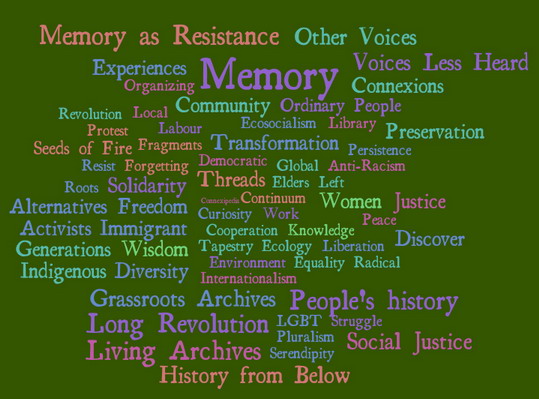
Your support is needed to keep Connexions going
All of the work of the Connexions project is done by volunteers, but our expenses include rent, phone and computer costs and technical support, as well as expenses related to our ongoing project of converting printed archival materials into digital formats. You can make a one time or regular monthly contribution through the donate page on the Connexions website.
Bequests
Many of us have made working for social justice a lifetime commitment. If you are thinking about leaving a legacy for social justice that will live on, you might want to consider leaving a bequest to Connexions in your will. If you'd like to discuss this option, please contact us or see the Bequest page.

